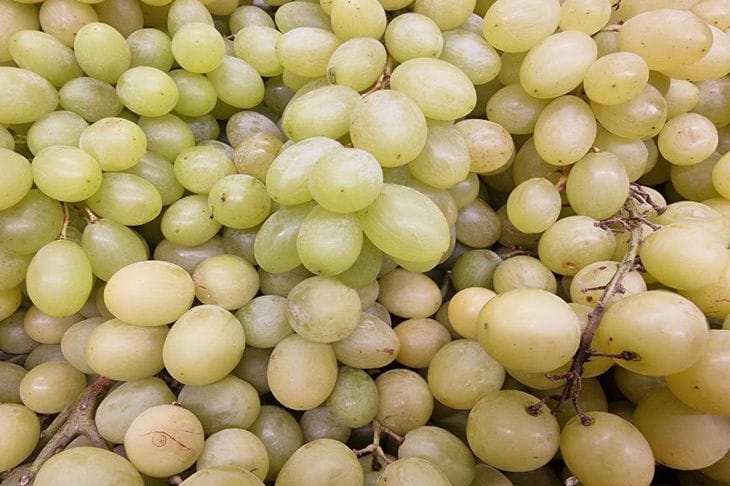Grapes are one of the oldest cultivated plants.
From the very beginning, people considered it a sacred and divine plant, the tree of life. Sumerian cuneiform represented the word "life" with a symbol in the form of a grape leaf.
The vegetarian Essenes, to whose church Jesus once belonged, were renowned for their wisdom and longevity.
Grapes, raw and dried, were their staple food, and they believed that this fruit was both food and medicine. The truth of the empirical wisdom of ancient peoples is confirmed one after another by modern science.
Nutritional value, liquid, minerals, vitamins, alkalization
Grapes are a storehouse of valuable substances, 80% of them are water, their energy and carbohydrate content are unique. Despite the high carbohydrate content, their glycemic index is only moderate. Due to the high water and potassium content, they are a good diuretic and detoxifying agent, and when consumed in large quantities, they reduce the acidity of the blood and urine.

In an alkaline environment, acidic waste products such as uric acid dissolve well and are therefore easily eliminated from the body.
As a result, the level of this acid in the blood and urine decreases, its crystals are not deposited in tissues, and gout pain and complaints are reduced.
The high content of vitamins A, B, C, K, potassium, selenium, biotin, iron and folic acid in grapes promotes hematopoiesis, the body's ability to defend itself, and maintain mental and physical performance.
Phytocompounds, polyphenols, flavonoids
The main task of phytocompounds (secondary plant substances) is to protect plant cells from the negative impact of the external environment, and these active substances also play an important protective role in the human body. The antioxidant action of flavonoids protects the body from the destructive action of free radicals. Grapes are very rich in these healthy compounds.
Procyanidin maintains the flexibility of blood vessels, neutralizes free radicals, can prevent atherosclerosis, reduces blood pressure, inhibits platelet aggregation, thrombus formation, and protects against heart attacks. Inhibits the formation of substances involved in the inflammatory process, including the formation of histamine, thereby reducing allergic symptoms.
Quercetin is a natural organic dye. Prevents histamine and other allergies, or the formation of inflammatory substances. It reduces the risk of heart attack, as an antioxidant it also protects against the harmful effects of LDL cholesterol.
Resveratrol is a non-flavonoid phenolic compound produced as an immune response in plants that protects against infections.
The combined anti-inflammatory action of polyphenols and resveratrol has also been demonstrated, as it inhibits the action of cyclooxygenase enzymes and improves glucose utilization in diabetics.
According to animal experiments, it has an anti-cancer effect and has a positive effect on the cardiovascular system. Its cosmetic effect is also known: it slows down the aging process of the skin.
Fisetin, which belongs to the flavonoid group, in addition to inhibiting tumor formation, improves long-term memory.
Grape seeds also contain pycnogenol, which is a powerful antioxidant compound. It reduces joint pain and has a positive effect on the cardiovascular system. It relieves stress and reduces allergies. Most likely, pycnogenol can penetrate the blood-brain barrier and protect nerve tissue from harmful oxidative processes.
Consultations on purchase and consumption
When purchasing, you need to pay attention to the integrity of the bunches and the density of the berries.
A thin whitish layer covering the berries can be a sign of good quality. This thin, even coating is not a trace of spraying, but a trace of moisture from the night air that condenses on the berries.
You don't want to pick unripe bunches because, unlike bananas, grapes don't ripen any further once picked. On the other hand, the riper the grapes, the more antioxidants they contain.
Biologically important active substances are mainly contained in the skins and seeds of grapes.
Therefore, it is better to refrain from buying seedless varieties, for the same reason, do not clean the berries and do not scrape out the seeds. You need to chew the seeds thoroughly so that as many biologically useful substances as possible can be released from them during the digestion process.
Grapes are a storehouse of valuable substances, and it is no coincidence that in Latin they are called “vitis”, which means life.
Earlier we talked about the beneficial properties of one plant – pumpkin .








